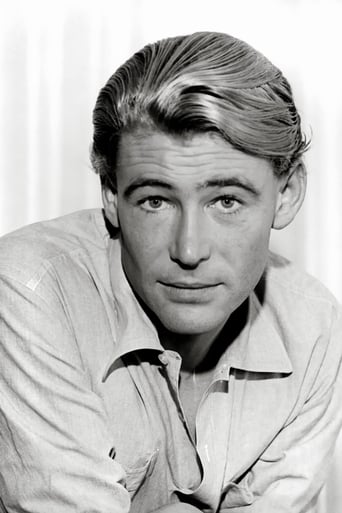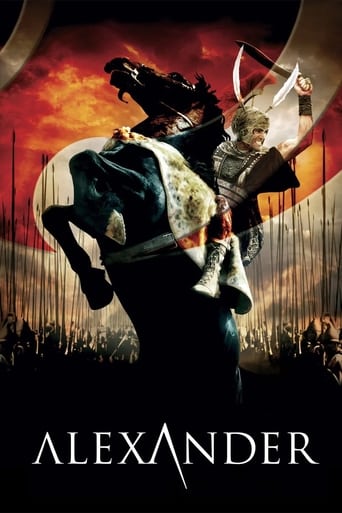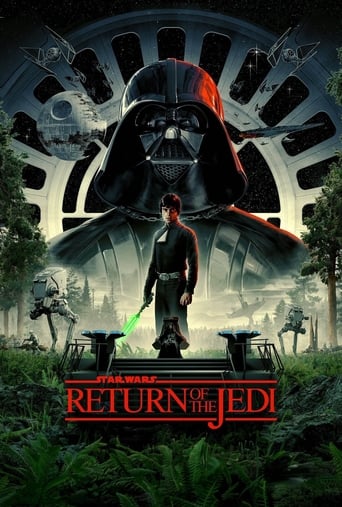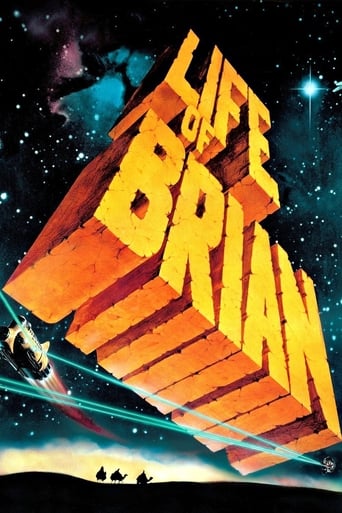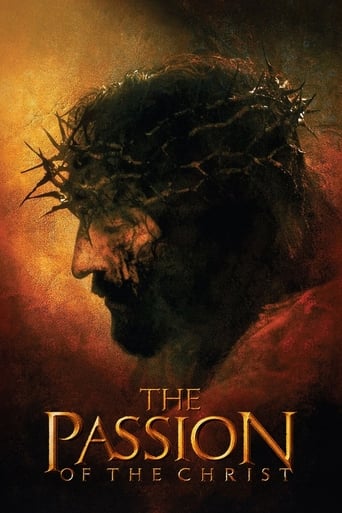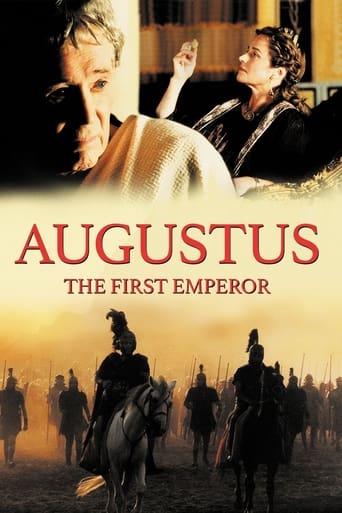
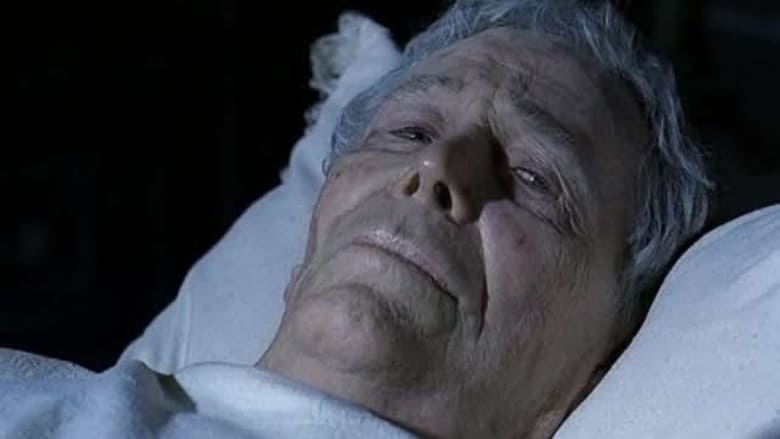
Augustus: The First Emperor (2003)
Caesar Augustus tells of how he became the emperor to his reluctant daughter, Julia following the death of her husband Agrippa.
Watch Trailer
Cast
Similar titles



Reviews
You won't be disappointed!
Touches You
Simply A Masterpiece
I cannot think of one single thing that I would change about this film. The acting is incomparable, the directing deft, and the writing poignantly brilliant.
Having seen lots of epics on ancient Egypt, Greece or Rome, the viewer is bound to be attached to some favorable depiction/depictions of a story and, consequently, make comparison. Moreover, what we can observe in the genre is a selection of historical material. It's clear that some stories are put to screen many times while other ancient or medieval events, which could be equally entertaining, are entirely ignored. And that is what we find here - another film adaptation about the rise of the Roman Empire. Consequently, a question could arise: "is there any point in making yet another movie about Augustus' reign?" It seems that the persona of Augustus Caesar has been widely developed in lots of film versions from spectacular CLEOPATRAs to brilliant novel-based drama I, CLAUDIUS (1976). In other words, does AUGUSTUS (2003) by Roger Young offer us anything new? At first sight, it occurred to me that the movie is practically yet another revision of what has already been said. What is more, being watched by some historian, it can appear to be discouraging for a person who notices quite a few serious inaccuracies. Just to note the fact that Octavian is depicted as a villager who finds himself once in the great world that Rome was and sacrifices everything to join his noble companions. Other errors include the depiction of deaths of Augustus' grandchildren Cassius and Lucius and the attempt on Augustus' life. The Battle of Aktium is skipped though it was so decisive for the events to come, for Octavian and Agrippa. So we soon realize that the aim of the director was no history lesson since he takes much liberties in this case. However, while looking deeper at some aspects of this film, you realize that the point lies somewhere else.Roger Young's movie's strength lies in the the psychology, the insight into the personal struggles of Augustus. Since it has a powerful tale to tell, the director uses the tool to tell the story according to his own vision: a story of a man who ruled the world but could not rule himself, his own life; a man with all his strengths and weaknesses, a father who was forced to send his beloved daughter to exile, a brother who had to sacrifice the happiness of his sister for Rome; a husband who could not foretell the wickedness of his wife; finally, a 'god' (worshipped by some people within the empire) who could not avoid the necessary fate of death. What comes in the end is one man, one life, one death... All this is presented memorably thanks to flashbacks and Augustus reflecting on his own decisions, deeds and consequences. And you as a viewer will feel empathy with him due to precious modesty portrayed in the end. But as far as the psychological reflections are concerned, I would like to highlight briefly one more aspect...You can have some doubts as for the authenticity of some thoughts due to their Christian, or as some people prefer 'modern' nature. There is a mention of love over power, of forgiveness over revenge. There is Julia at dying Augustus to represent forgiveness. Even Augustus himself mentions the birth of a Savior while denying his own divinity... Strange... The story is set in pagan Rome where there was no room for Christian ethics. What does the director want to convey? What does he want to tell us by that? Could people who did not know Christian values consider them so seriously? Perhaps the universal presence of God's Spirit within humanity?... This is a dilemma that I tried to figure out and could not find most adequate answers to these questions.Other stories, other plots are there as rather historical than historic. Yet, there is a need to mention some of them. We have the aforementioned Julia portrayed by Vittoria Belvedere, a tragic woman striving for happiness of love by means of decadence of lust. There is Livia, Augustus' wife portrayed by sweet young Martina Stella and later by Charlotte Rampling indeed not that memorable as Sian Phillips in the famous TV series but giving quite a decent performance. There is beautiful Anna Valle as seductive Cleopatra and pathetic Massimo Ghini as Mark Antony. There are supporting cast worth attention like as Cicero. But no performance can equal to Peter O'Toole's in the lead. He crafts the difficult role perfectly making it possible for the viewer to understand Augustus, to get his point, to see the events in his way, from his point of view.All in all, does the movie play its role well? Not so much as an epic but it was not meant to be a spectacle whatsoever. It's worth seeing as a biopic of a powerful ruler and a simple man convincingly portrayed by a talented artist and a terrific actor. Applause Augustus Caesar! Applause Peter O'Toole! 7/10 for the whole movie
My wife and I couldn't even finish the film. Truly, it was rather painful.First, the historical accuracy is compromised not so much by the events themselves as the ridiculous one-dimensionality of the characters. For instance, Augustus takes the "burden" of power only with great reluctance. Indeed, he is portrayed as if he's some sort of great humanist and believer in democracy.Second, the camp! My lord, the dialog is horrifically bad. I recall the soap opera my mother watched when I was a child having better dialog than this. The constant exposition and pontificating grates upon the ears like fingernails on chalkboard. Ugh. (Okay, I exaggerate a bit, but the dialog truly is bad.) The HBO series Rome is superior for no other reason than that its characters were at least believable, regardless of their historicity.Rome was also wise enough to know they couldn't stage epic battle scenes. The creators of this film did not. When Caesar attacks Munda, the battle scene is practically farcical.I will grant that the costumes are perfectly good. The sets are fine, though their CGI backdrops can be a bit jarring at times. The sound is bad, though—both in terms of the music, the foley work, and the dubbing of so many of the side characters.Anyway, it's completely not worth renting. As a history major, I was hoping for an alternative approach to Augustus than HBO's Rome, which, I feel, failed to capture his overall "feel" quite as well as they did Caesar or Antony. Instead, I should have just stuck to my reading.
In terms of historical accuracy, this is the absolute worst Roman film I have ever seen. The list not only of errors but of plot ideas that are flat impossible would run longer than the three-hour film, but just to give you an idea...Julius Caesar and Augustus are presented as liberal Democrats, taking the side of "the people" against "the nobles." This is patently absurd. The Caesars were as noble as you could get. Their interest was in consolidating power and stabilizing a country that had been wrecked by 150 years of civil war. There had been reformers, notably the Gracchi brothers, who lived about 100 years earlier, and to some extent advocated for the rights of ordinary citizens.There are several scenes that are utterly ridiculous, if you know anything about the period. "Cleopatra", with Richard Burton, will give you a much better idea of how events unfolded, fanciful though it is.Historical accuracy is one thing. Acting and dialogue are something else, and here this film veers perilously close to being a bad junior high school production. I burst out laughing several times, especially when Julia, the daughter of Augustus, meets a lover. They clutch passionately, as she breathes: "My father..." "Ah, your father, your father.... your father would disapprove." Peter O'Toole is at his worst, forced to gnaw his way through some very pompous and silly lines. The actor who plays Augustus as a young man is such a nebbish --- and the character is written as such --- it's impossible to envision him as the cunning, crafty, Machiavellian politician who created the Roman Empire. Here, he's just a whiner who has to be told what to do most of the time.Charlotte Rampling does manage to emerge from an underwritten role as Livia, Augustus's wife, with dignity. Had she been given a fuller role to play, she might have rescued this production from absurdity.There is some nice photography and battle footage, helped by plenty of standard issue CGI. Oddly, this was made for British TV (and appears to be a British-Italian co-production) but is labeled with an "R" rating.The DVD picture is excellent and the Dolby Digital soundtrack is very nice, although you only notice it during the few action sequences, as the movie is mostly talk.Almost any Roman movie, even "Cleopatra" or "The Fall of the Roman Empire", has more historicity --- to say nothing of compelling drama --- than this bizarre Classics Illustrated, Jr. adaptation. This one gives new meaning to the much-abused phrase, "Based on a true story." In this case they could have said, "Suggested by real events."
Yes, so many historians out there complaining the movie was not historical correct, but it never claimed to be. The movie was made for entertainment purposes and showed great battle scenes as like those in the days of yesteryear. It didn't claim to be a docudrama, for those who want the correct history i'm sure there's plenty of material out there for those. To me as long as it was close to the actual events of it's time, which it was, that's good enough for me. So many other movies like the latest version of "The Alamo" had a lot of correct history but also showed things that no one could really verify like Davey Crockett yelling at Santa Anna commenting how short he was and before they murdered him he warned them he was a screamer.Fact or Hollywood? Just take Augustus for what it is and enjoy this epic with great battle scenes and done in the same manner as past greats like "Ben Hur" and "Cleopatra". I think you'll enjoy it much better this way. You can always go to the library or get the actual facts later. Take it for what it is, an entertaining movie.
